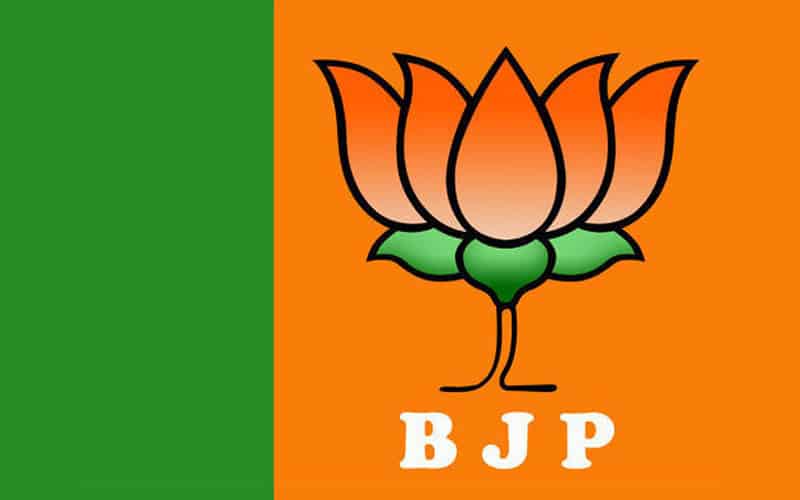Bengaluru: With a heavy voter turnout in rural areas and most exit polls predicting majority of seats for the BJP in the 15 Assembly segments in Karnataka’s Thursday’s byelections, the ruling party is upbeat on staying put in the southern state for over three years more, a party official said.
“We are confident of winning 10-12 of the 15 Assembly segments though we require only 6-7 more seats for a simple majority in the 223-member House, with 112 as the halfway mark,” BJP’s state unit spokesman G. Madhusudan told IANS.
The ruling party has 105 members, including the Speaker and support of Independent H. Nagesh, who is the excise minister in the over four month old Yediyurappa government since it returned to power on July 26 after the fall of the 14-month JD-S-Congress coalition government on July 23.
“The heavy turnout (over 70 per cent) in 10 rural segments and moderate in three semi-urban seats indicate the robust participation of the electorate in the polling exercise. A higher voting percentage in byelections is advantageous to the BJP, as more people prefer to vote for the ruling party to get developments funds for their constituencies,a asserted Madhusudan.
According to the Election Commission, though the average turnout in the 15 seats was nearly 68 per cent, eight rural constituencies registered above 75 per cent, with the highest percentage (90.90) in Hosakote in Bengaluru Rural district, followed by Chikkaballapur 86.84, Hunasuru 80.59, Krishnarajapete 80.52, Hirekerur 79.03, Yellapur 77.53, Kagwad 76.24 and Athani 75.37.
“Though 11 Congress and three Janata Dal-Secular (JD-S) defectors contested on our party ticket, the record turnout in most of their constituencies also show their popularity with the electorate even after joining the BJP and entering the fray on our party symbol (lotus),” reiterated Madhusudhan.
With the JD-S contesting only in 12 seats, the ruling BJP and the Congress were in straight contest in three crucial seats — Athani in Belagavi district, Yellapur in Uttara Kannada district and Hosakote in Bengaluru Rural district.
“In the 12 triangular contests, we are sure of benefitting from the division of common or secular votes between the Congress and JD-S as in the May 2018 Assembly elections and other polls in the past. The ruling party mostly benefits in any byelection,” the spokesman recalled.
For instance, in Bengaluru’s Shivajinagar, which has the maximum number of minority votes, BJP’s M. Saravana is the lone Hindu candidate pitted against 10 Muslim candidates, including one each from Congress, JD-S, SDPI (Socialist Democratic Party of India), Berojgar Aadmi Adhikar Party and Karnataka Rashtra Karmikara Paksha and five Independents.
“As the minority votes get divided among the Muslim candidates and the majority Hindu votes consolidated if the electorate voted on community lines, the BJP candidate benefits, as the constituency’s seven time winner Roshan Baig did not contested this time after the ruling party declined to admit him to contest on its ticket,” a political analyst told IANS.
Though the resignation and subsequent disqualification of the former 14 Congress and three JD-S rebel legislators caused the 17 vacancies in the 225-member House, byelections in two constituencies – Muski in Raichur district and R.R Nagar in Bengaluru southwest — were not held due to litigation in the Karnataka High Court on the results declared after the May 2018 Assembly elections.
In the 223-member Assembly, including one nominated from the Anglo-Indian community with voting right, the opposition Congress has 66 members and JD-S 34. The latter’s ally Bahujan Samaj Party (BSP) has 1 member and vacancies are two.
“The BJP will remain in power comfortably for the remaining 36 months if it wins 10-12 seats, as projected by most of the Kannada news channels and C-Voter in their exit polls, aired after the voting ended on Thursday evening,” the analyst added.
With the Congress and JD-S turning adversaries after their fledgling coalition government collapsed on July 23 following the defeat of the confidence motion its then chief minister H.D. Kumaraswamy moved on July 18 in the Assembly, the BJP is also betting on the regional party (JD-S) abstaining from voting in the event of a floor test for a trial of strength through a voice-vote or division of votes should the Congress move a no-confidence motion against Chief Minister B.S. Yediyurappa and press for a division vote.
“As the state suffered from an unstable JD-S-Congress coalition government for 14 months, the people do not want them in power again or a mid-term poll within months after the Lok Sabha elections in April-May and over a year after the Assembly elections in May 2018,” noted Madhusudan.

